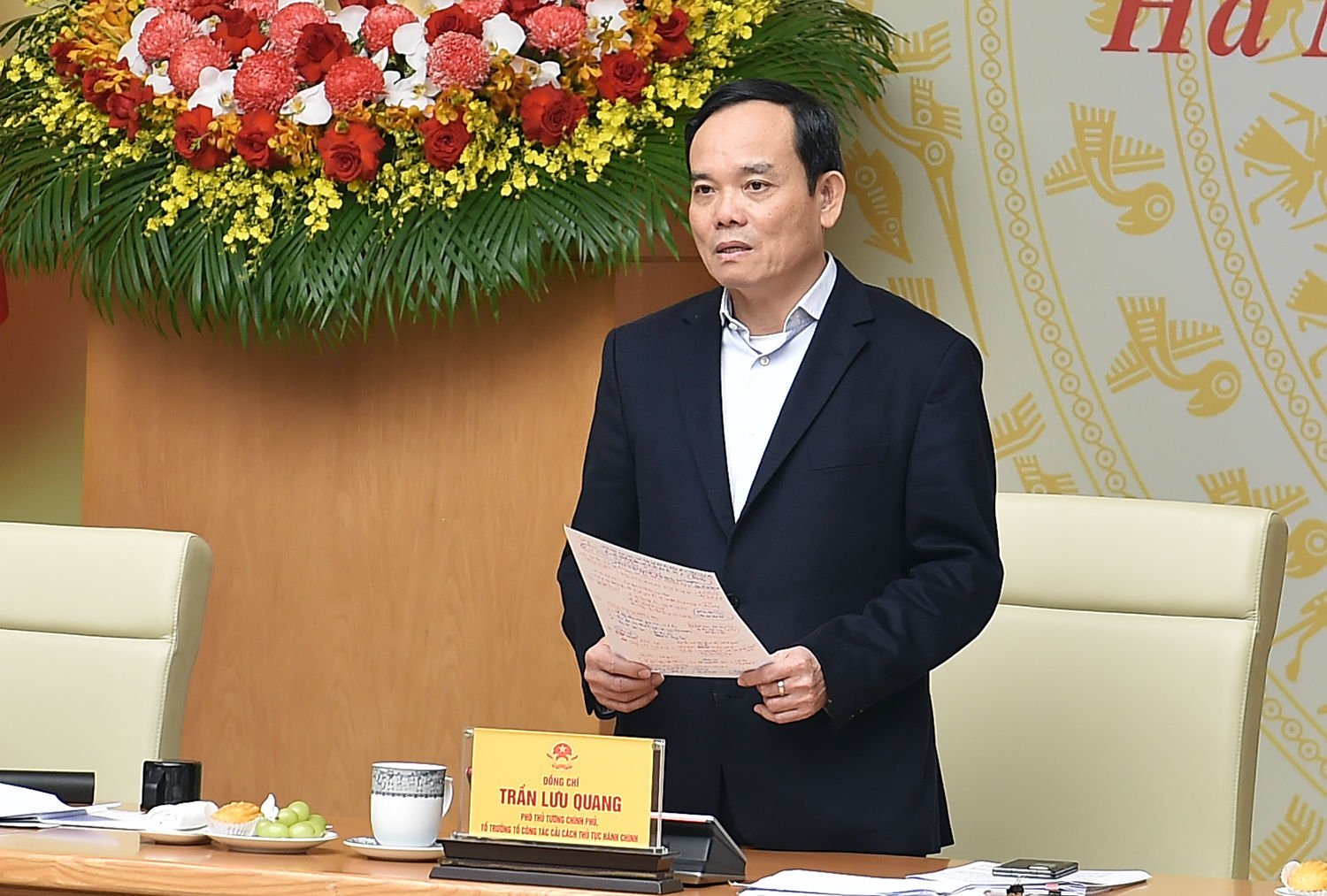
The above spirit was thoroughly grasped by the Deputy Prime Minister at the Third Session of the Prime Minister's Administrative Procedure Reform Working Group and the Prime Minister's Administrative Procedure Reform Advisory Council, which took place in Hanoi on the morning of February 26.
Also attending were Minister of Home Affairs Pham Thi Thanh Tra; Minister, Head of the Government Office Tran Van Son; representatives of leaders of ministries, branches and business associations who are members of the Working Group and Advisory Council.
This is the first time the Working Group meeting has been attended by members of the Advisory Council to exchange, share information, and enhance coordination between the Working Group and the Council.
Strengthening the Prime Minister's Advisory Council on Administrative Procedure Reform
At the meeting, Minister and Head of the Government Office Tran Van Son announced Decision No. 1682/QD-TTg dated December 26, 2023 on the establishment of the Prime Minister's Advisory Council on Administrative Procedure Reform, chaired by the Minister and Head of the Government Office.
The Council has the function of advising and proposing to the Prime Minister reform initiatives on mechanisms, policies, and administrative procedures related to production, business activities, and people's lives; and evaluating the implementation of administrative procedure reform at ministries, branches, and localities.
The Government Office is the standing body of the Council, responsible for coordinating and ensuring working conditions for the Council and mobilizing other relevant agencies and units to participate in the Council's activities; studying administrative reform initiatives proposed by Council members before the Council Chairman reports to the Prime Minister for consideration and decision.
The Department of Administrative Procedure Control, Government Office is the assisting agency of the Council, performing the duties of the Council's secretary.
The Council has 4 working committees including: Committee on Reform of Mechanisms, Policies, and Administrative Procedures (Committee I) headed by the Chairman of the Vietnam Association of Small and Medium Enterprises; Committee on Evaluation of the Implementation of Administrative Procedure Reforms (Committee II) headed by the Chairman of the Vietnam Federation of Commerce and Industry; Secretariat (Committee III) headed by the Director of the Department of Administrative Procedure Control, Government Office; and Committee on Private Economic Development Research (Committee IV) headed by the Chairman of the Founding Council of the Association of Software and Information Technology Services.
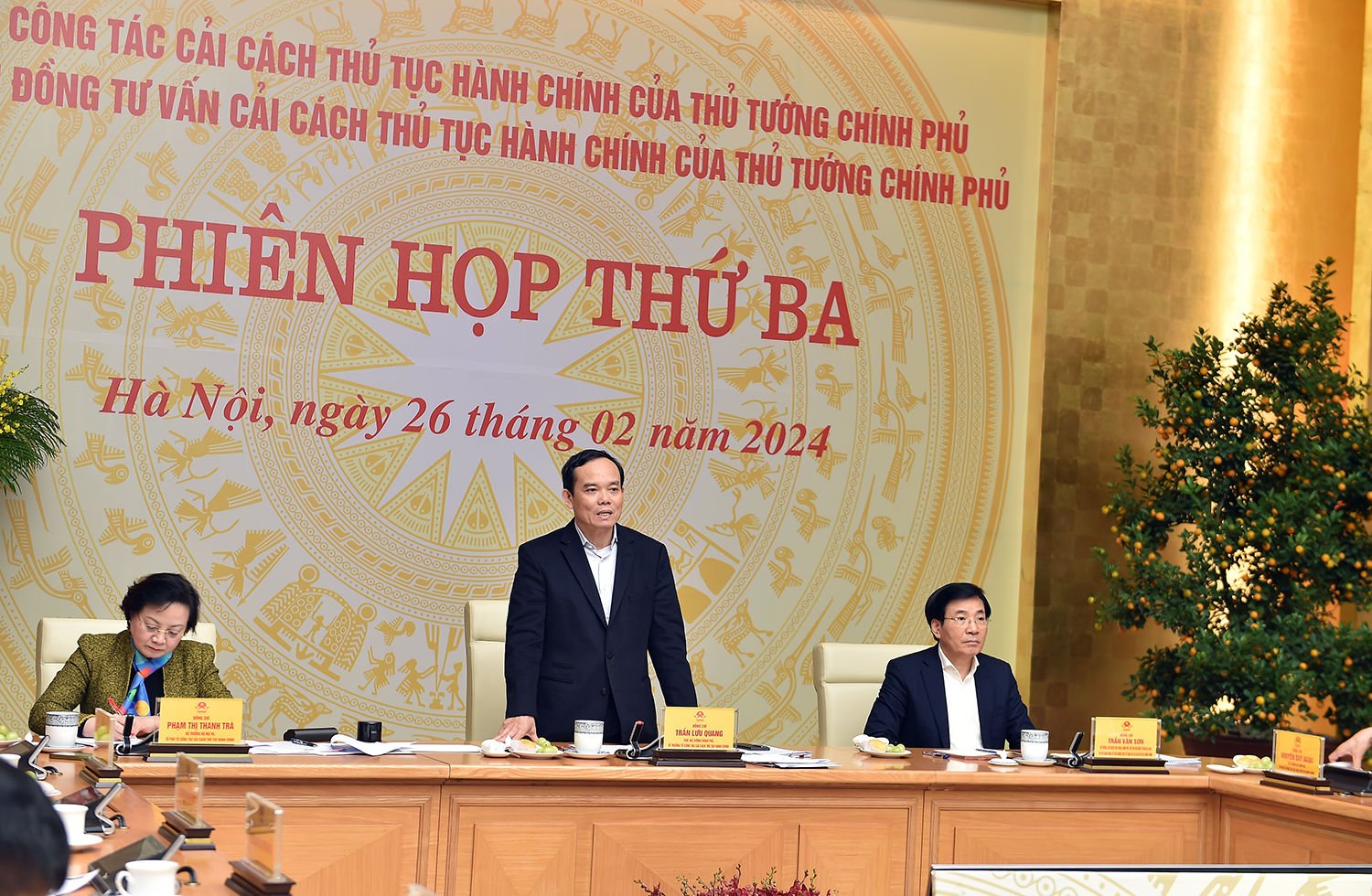
The working group handled 130 petitions and feedback from businesses.
The report at the meeting showed that, although newly established and with a new approach that emphasizes the responsibility of each member, the Working Group has promoted its role and achieved remarkable results, including advising the Prime Minister to issue Directive No. 27/CT-TTg dated October 27, 2023 on continuing to promote reform solutions and improve the efficiency of handling administrative procedures, providing public services to serve people and businesses and 19 documents directing and urging ministries, branches and localities to implement assigned tasks on administrative procedure reform, as well as rectify the issuance of some inappropriate regulations that cause inconvenience to people and businesses.
The working group received and directed ministries and agencies to handle 130 feedbacks and recommendations from business associations and member agencies of the Advisory Council for Administrative Procedure Reform. The ministries and agencies handled and responded to 116 feedbacks and recommendations in 2023, reaching a rate of 89.3%.
The Advisory Council has also been streamlined, practical and effective. Over the past year, the Advisory Council has developed and published many reports related to administrative procedure reform and business support policies with many recommendations to send to ministries, branches and localities for research and reference; synthesized reflections and recommendations on difficulties and obstacles in implementing mechanisms, policies and administrative procedures and reported to the Steering Committee for resolution.
According to the report, up to now, the reduction and simplification of regulations and administrative procedures has achieved outstanding results such as more than 2,700 business regulations and 561/1,086 administrative procedures under 19 specialized Resolutions of the Government have been reduced and simplified, and 156/699 administrative procedures have been decentralized for settlement.
Ministries, branches and localities have actively published the list of internal administrative procedures for review and proposed simplification options.
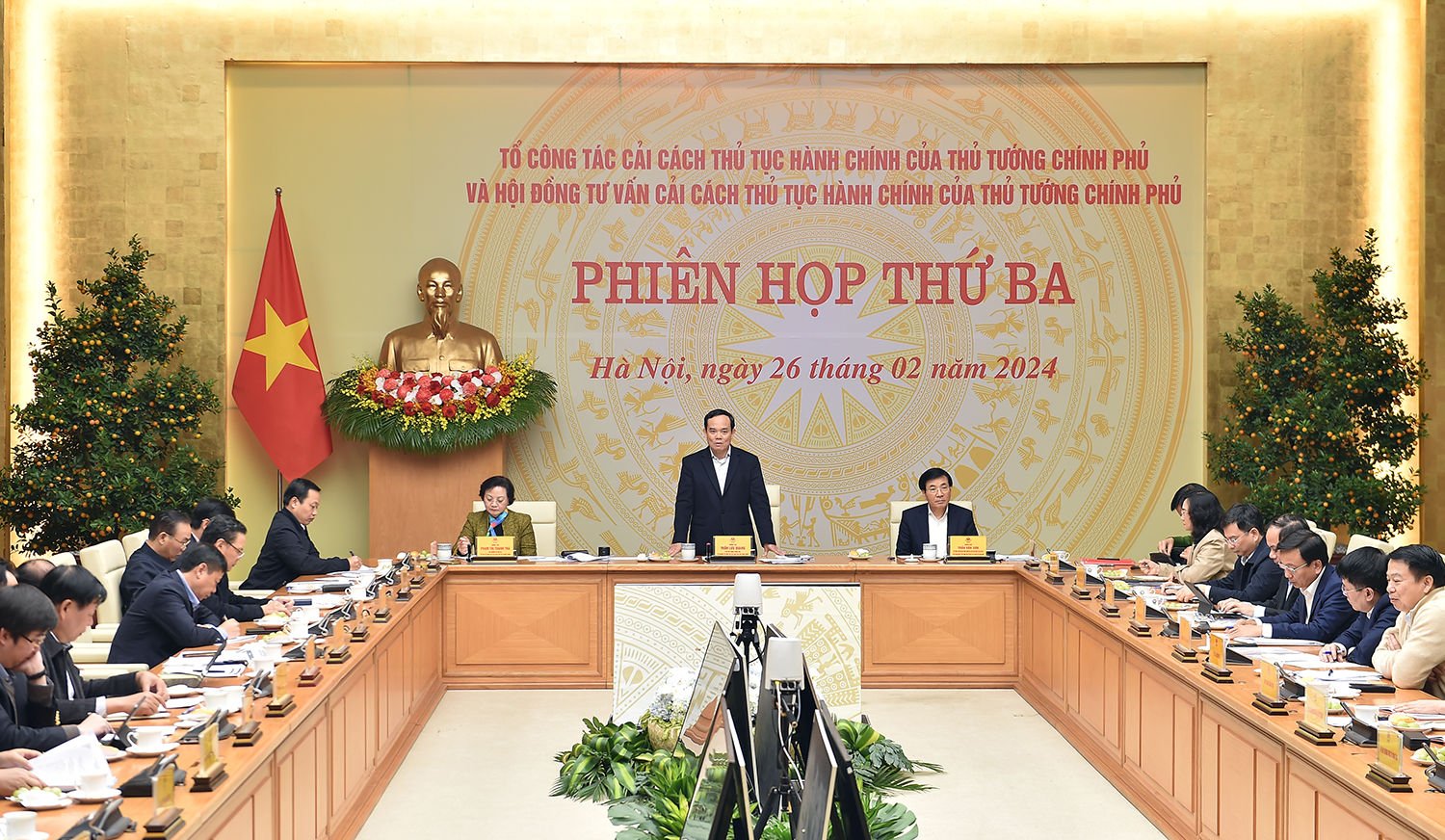
Providing more than 4,500 online public services
Innovation in the implementation and settlement of administrative procedures has been focused on. To date, more than 4,500 online public services have been provided on the National Public Service Portal and the integration of 25/25 essential public services under Project 06 has been completed.
The rate of online records of ministries and branches reached 30.4%, an increase of 1.4 times compared to 2022; localities reached 37.4%, an increase of 3.7 times compared to 2022.
The digitization rate of administrative procedure settlement results at ministries and branches is 28.59%, an increase of 11% compared to 2022, and at localities it is 39.48%, an increase of 31.44% compared to 2022.
At the meeting, representatives of domestic and foreign business associations raised a number of shortcomings and problems regarding on-site import and export taxes, social insurance, interest rates on old loans, environmental protection, origin of goods, etc.
Leaders of ministries and branches acknowledged and responded to the above shortcomings and problems; proposed a number of solutions to further improve the effectiveness of the Working Group.
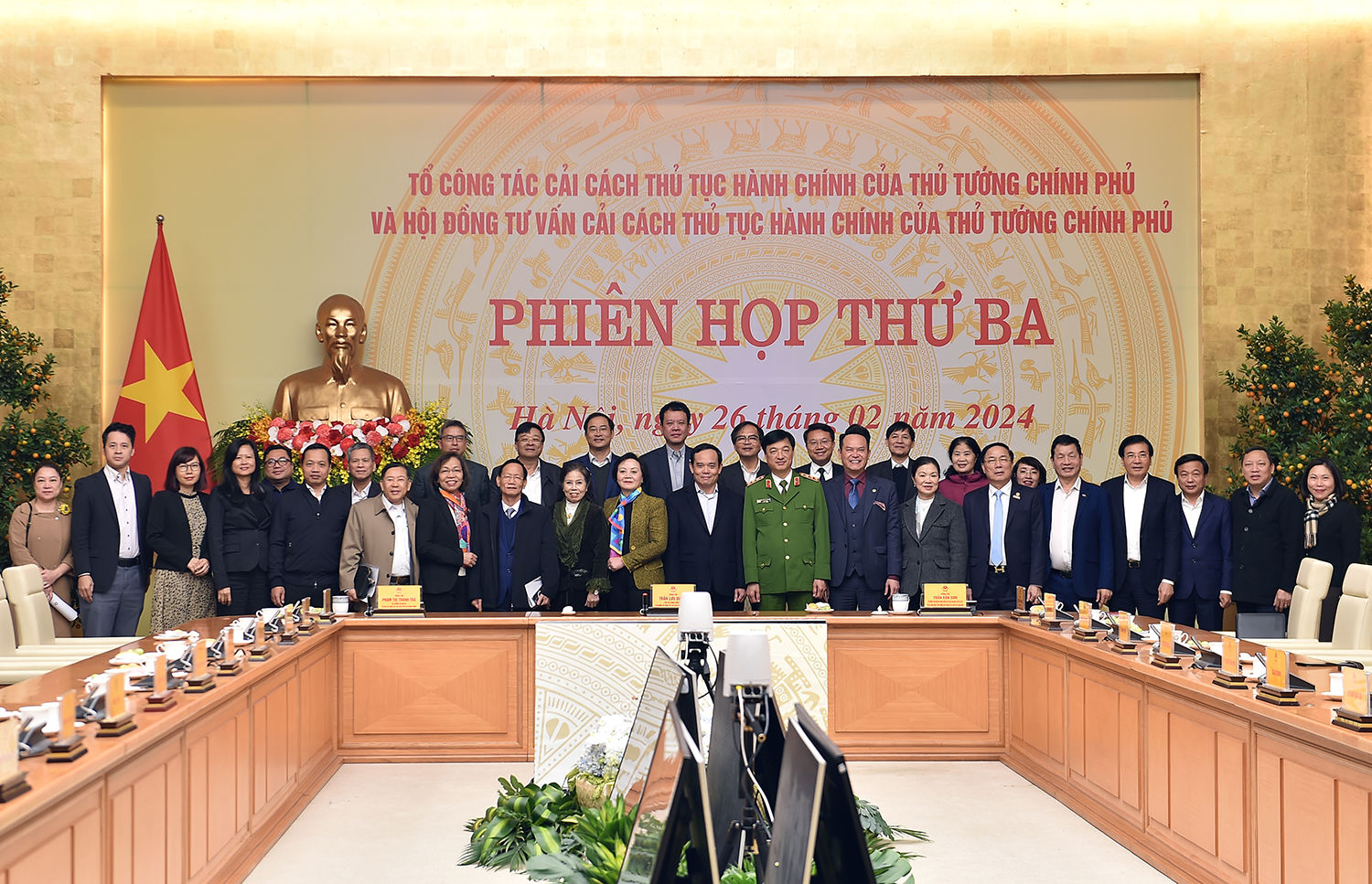
Not only acknowledge but also actively consider and handle
Concluding the meeting, Deputy Prime Minister Tran Luu Quang acknowledged and highly appreciated the efforts of the members of the Working Group and the Advisory Council on the results achieved in administrative procedure reform in various fields in 2023, especially in promoting strong decentralization to localities.
In addition to the achieved results, the Deputy Prime Minister also emphasized that there is still much work to be done, many things are still stuck, there are still very difficult tasks, so we must continue to make efforts, change the way of thinking, the way of doing, because if we do not continue to reform, things will not go smoothly, will not run, we will lose, will fail.
According to the Deputy Prime Minister, there are still regulations that are not suitable for the country's current development level and general development trends while Vietnam is increasingly integrating deeply into the international community and participating in the common rules of the world.
Besides, there is also an "inconsistency" between regulations in laws, circulars, decrees; between central agencies; between central agencies and localities; and even between localities.
The situation of shirking responsibility is caused by internal administrative procedures of central and local agencies. Some handling is not effective because it only stops at the level of "recording" reflections and recommendations during meetings.
For administrative procedures in new fields such as digital transformation, green transformation, artificial intelligence, new energy, e-commerce, innovation, etc., we must try to consider this an opportunity instead of complaining about difficulties, because if we complain about difficulties, we will certainly fail, not to mention develop.
Regarding the tasks in the coming time, the Deputy Prime Minister requested the members of the Working Group to continue to maintain the reception mechanism in many forms, including direct dialogue and handling information and feedback in a very responsible manner, first of all information, feedback and proposals from the Advisory Council for Administrative Procedure Reform.
Regarding the Advisory Council, the Deputy Prime Minister hopes that the Council members will share information and give timely and clear advice to the Working Group.
The Standing Committee of the Working Group and the Standing Committee of the Coordination Council shall advise on the list of tasks that ministries and branches must implement with specific completion deadlines; and summarize and report on the implementation results at the next meeting.
The Deputy Prime Minister emphasized the general spirit that each ministry or sector should proactively handle the task according to its authority; issues beyond its authority should be reported to the Working Group for proposal to competent authorities for handling.
The Deputy Prime Minister also agreed in principle on the need to hold specialized meetings on administrative procedure reform in specific areas such as e-commerce, insurance, tax, etc. to further improve the quality and effectiveness of administrative procedure reform./.
Source
















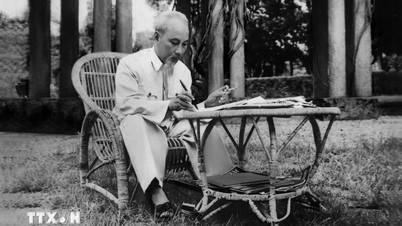

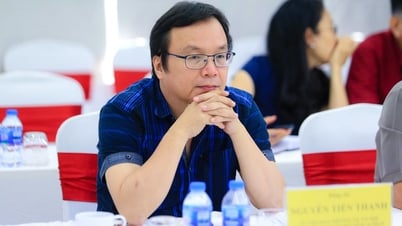





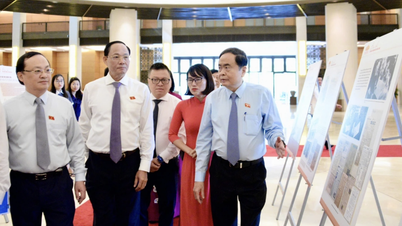



































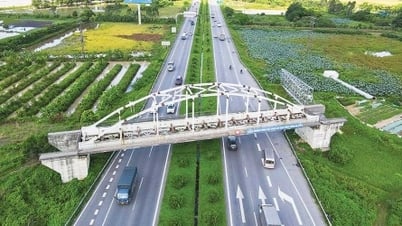
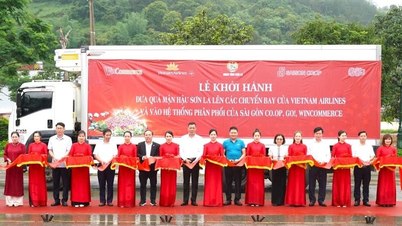








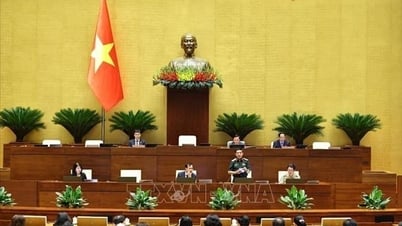


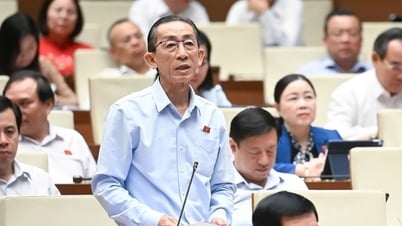









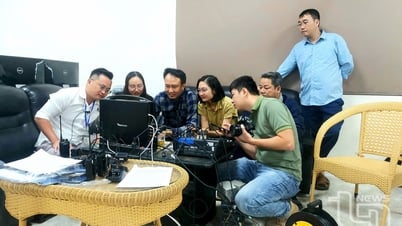

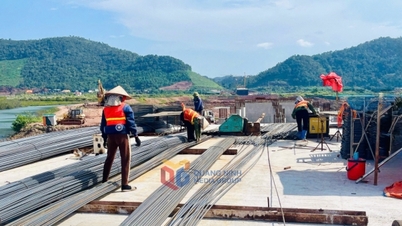

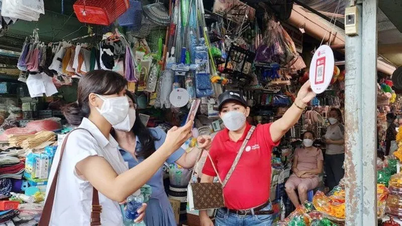
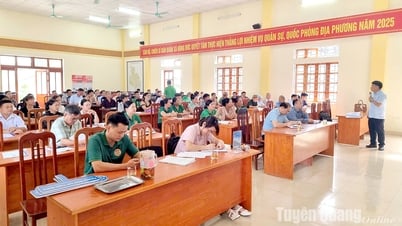














Comment (0)